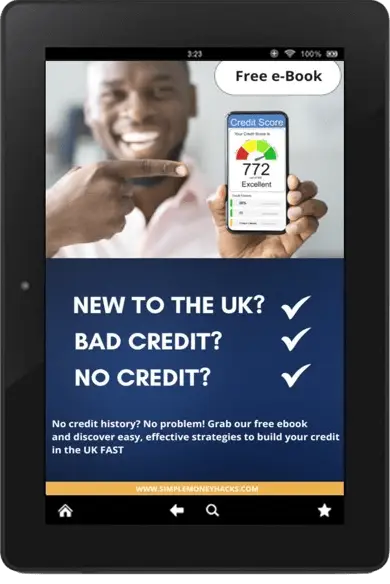When I started my business, there were many things I had to think about and get done. It was easy for me because I am an accountant. And because many business owners are not, I have compiled a new business accounting checklist to assist you with the accounting-related aspects of beginning your business.
1. Start With a Business Plan.
Don’t overthink this. In simple English, a business plan is a written outline of what your company intends to do to achieve its objectives.
For example, what products or services do you intend to sell?
Who are the customers you want to sell to? And how do your products and services better fit your customers’ needs than your competitors?

Let’s pretend I want to start a new food delivery service business called “Food2Go.”
Customer Needs Convenience, Variety, and Customization.
Competitor: QuickBite Meal Delivery
“Don’t overthink this. In simple English, a business plan is a written outline of what your company intends to do to achieve its objectives.”
— Joyce, SMH
Food2Go Value Proposition:
At Food2Go, we excel in meeting these needs in the following ways:
Customisable Menus: We offer a wide range of menu options that can be tailored to meet each customer’s requirement.
Flexible Ordering: We provide a user-friendly mobile app and website allowing customers to place and modify their orders anytime easily.
Culinary Diversity: We collaborate with a diverse team of professional chefs specialising in various cuisines worldwide.
Timely Deliveries: We prioritise prompt and reliable deliveries, ensuring that our customers receive their meals on time, every time.
Our competitor QuickBite Meal Delivery
Has a smaller menu with fewer customisation options.
A rigid ordering structure makes last-minute alterations challenging.
They offer few traditional meals, limiting cultural exploration.
Their delivery timings have frustrated customers.

A good plan will also have a step-by-step outline of how you plan to deliver on your promises and how you expect to fund your operations, marketing, and any other costs related to running a business.
Why Do I Need a Business Plan?
A business plan is helpful for two main groups of people.
Internal usefulness: To keep you, the business owner, and others focused and aligned on the best strategies to help you achieve your goals.
External usefulness: To help you convince investors to fund your business.
Business plans should be looked at and changed every so often to account for goals that have been reached or altered.
Where Can I Get a Business Plan?
There are companies that specialise in drafting business plans, but they can cost you an arm and a leg, especially if you are a tiny business or a solopreneur.
You can create your own using ready-made templates. Modify the template to suit your needs. Nobody knows your business goals better than you. Express your company goals on one of these ready-made templates.
2. Register Your New Business
In the UK, all limited companies must register with Companies House. You need to tell them who owns your company (the shareholders) and who runs it (the directors). Most times, the director will be you.
In addition:
- You must also send in a copy of your annual financial accounts yearly.
Companies House makes it easy to sign up your business online. - Make sure that another registered business isn’t using the name you’ve picked for your business. You can check here quickly.
- You need a business address in the UK.
- Companies House will charge you £12 to register the business online.
3. Register Your Business With Tax Authorities
In addition to registering with Companies House, you must register with the relevant tax authorities, which in the UK is the His Majesty’s Revenue & Customs or HMRC for shorts. After registering with HMRC, you will receive a tax reference, a Unique Tax Reference, or UTR for short.
You can send in your filing your annual tax return electronically.
4. Open a Business Bank Account.
There are many good reasons to keep your business and personal finances separate. Here are some of the benefits:
- Make your accounting easier.
- Your accounting software can be linked to your business bank account.
- Protects your personal assets from your business debts if the company fails.
- It can help your company build credit.
- Enhances the professionalism of your company
Coming soon: Top 7 UK Start-up Bank Accounts.
5. Keep Records of Income and Expenses.
Keeping correct and up-to-date records gives you a clear picture of the financial health of your business. Other benefits include:
- It helps find any money leaks or areas for growth.
- You make wise choices about your budget, cost-cutting, and investment strategies.
- It also helps you set realistic goals for your money and track how close you are to reaching them.
There are several tools available to help you with this task. Here are some of the best tools to consider:
QuickBooks, Xero, and Wave, are all popular alternatives. These applications provide functionality like invoicing, expense management, financial reporting, and tax preparation.
Click here to see the top ten free accounting software for your business.
6. Find an Accountant
Partnering with an accountant can offer you peace of mind and allow you to focus on building your business while ensuring that all financial issues are handled accurately and professionally.
Accountants can help with the following:
- Tax compliance
- Time-saving in book-keeping matters
- Financial analysis and planning
- Business growth and expansion
- Risk management and compliance
Remember to choose an accountant with experience working with small businesses or solopreneurs. They should be knowledgeable about your industry and understand your unique financial needs.
Final thoughts
Remember that it’s vital for the success of your small business to keep correct and well-organised financial records. Review and update your financial accounting practices regularly to keep track of the financial health of your business and make intelligent choices.
Thanks for reading. See my blog highlighting the key differences between being a sole trader, self-employed and setting up a limited company.
Don’t forget to sign up for my newsletter so you are informed whenever there is a new blog.





